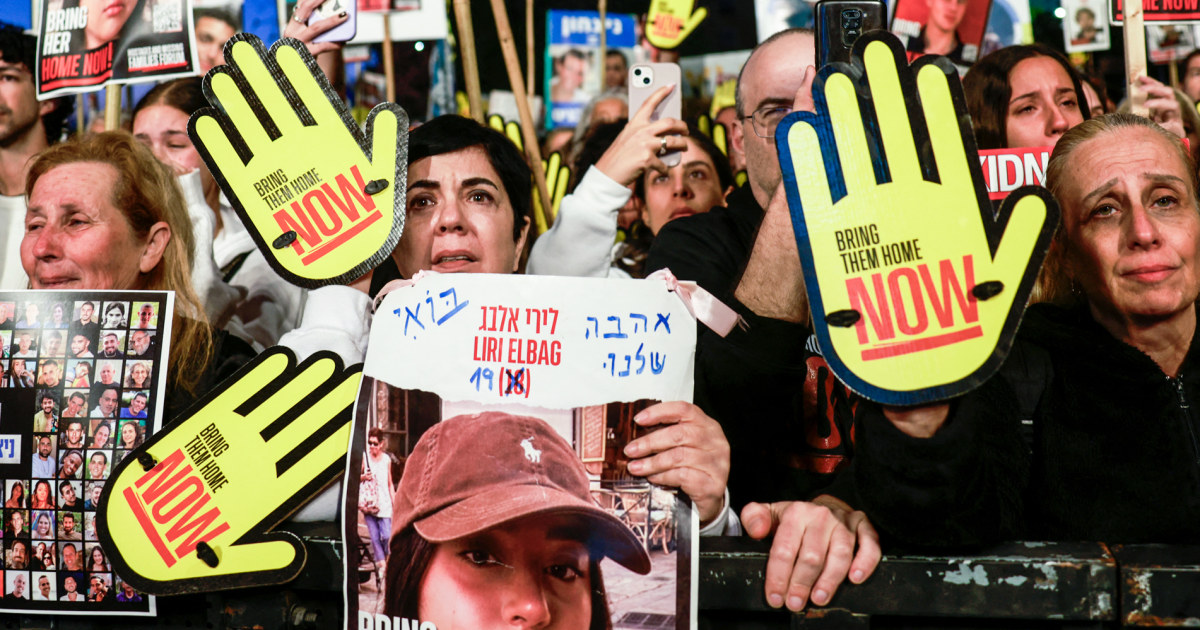
Title: Unraveling the Mystery of Hostages in Gaza: An Update on the Ongoing Crisis
Lead: More than six months have passed since Hamas seized over 250 hostages during their attacks on Israel, leaving families anxiously waiting for news about their loved ones. However, it remains unclear exactly how many of these captives are still alive in Gaza.
Paragraph 1: The uncertainty surrounding the number of living hostages has caused great distress among the families affected and complicated international efforts to negotiate a cease-fire deal and secure their release. According to U.S. and Israeli officials, Hamas has been unable to confirm that they have identified 40 captives who meet the criteria for exchange in a proposed cease-fire formula.
Paragraph 2: The proposed agreement calls for Hamas to free 40 hostages, including women, children, sick and elderly men. In return, Israel would release potentially hundreds of Palestinian prisoners. However, Hamas' inability to identify eligible captives has stalled progress in the negotiations.
Background Information: Hamas is a militant organization that controls the Gaza Strip. The conflict between Hamas and Israel began on October 7, 2023, when Hamas launched attacks on Israel, resulting in over 1,200 deaths according to Israeli authorities. During these attacks, more than 250 hostages were taken by Hamas.
Paragraph 3: The international community has been actively involved in efforts to secure the release of the hostages and bring about a cease-fire. The United States, under President Biden's administration, has been working closely with Egypt and other regional powers to facilitate negotiations between Israel and Hamas.
Paragraph 4: Mohammed bin Abdulrahman Al Thani, the Prime Minister and Foreign Minister of Qatar, has acted as a trusted interlocutor in these talks. He played a significant role in producing a cease-fire between Israel and Hamas last year, which resulted in the release of over 100 hostages.
Conclusion: As the situation unfolds, it is crucial to remain informed about this ongoing crisis and its impact on the lives of those involved. The uncertainty surrounding the number of living hostages highlights the importance of continued international efforts to secure their release and bring about a lasting peace in the region.


